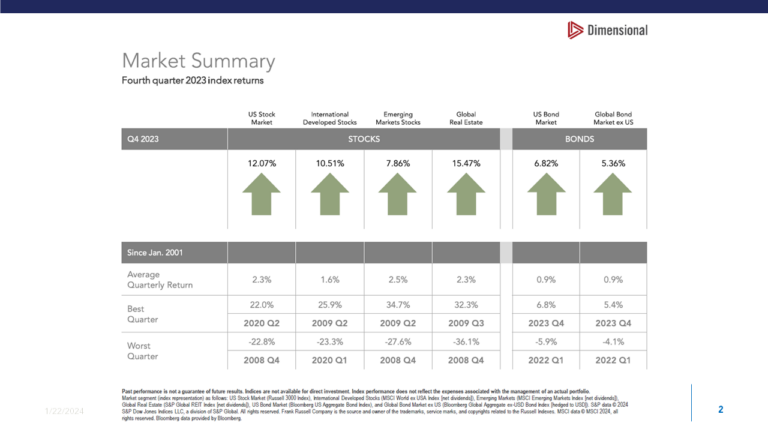The theme of Rory Sutherland’s wonderful book “Alchemy: The Dark Art and Curious Science of Creating Magic in Brands, Business, and Life” is that the logical answer is not always the best answer. This certainly holds true in the field of financial planning. We live in a world that has created an idea that science and logic will lead to optimal outcomes. Sutherland disagrees:
“If we allow the world to be run by logical people, we will only discover logical things. But in real life, most things aren’t logical –they are psycho-logical. There are often two reasons behind people’s behavior: the ostensibly logical reason, and the real reason.”
We have been conditioned to believe that so much in life can be efficiently managed by applying the correct algorithm – including managing a retirement plan. This is the marketing strategy of many Wall Street firms. It cannot be further from the truth.
Logic does play a large part in retirement planning, but so does human psyche; and it is understanding the client’s psyche that is critical in making a good retirement a great retirement.
Throughout my career I have had experiences developing many logical recommendations that would lead to potentially higher returns or long-term wealth for clients, but did not work because of emotional or personal circumstances. A classic example is Social Security claiming. Retirement planners, who have clients with substantial savings, will often recommend clients delay Social Security until age 70. They present clients with information that demonstrates how delaying Social Security will increase the probability of not running out of money and increasing end of life wealth. It looks great on paper, except it does not take into account the emotion of watching life savings aggressively decrease as Social Security is delayed, or that a client may not care about end of life wealth, or if investment returns are not as good as predicted.
Many years ago, I was working with a wealthy couple needing retirement planning. They were driven by wealth accumulation; they had a very high net worth, no children and no strong charitable goals. I presented them a beautiful report that showed how much more their estate would be worth at age 90 if the husband delayed his Social Security until age 70. In fact, in this case, if the husband lived past 80, he would get more from Social Security versus starting at age 62. I thought to myself: “this analysis will help them achieve their desire for higher wealth, it will maximize their return from Social Security; they will surely see the rationale in my recommendation and agree to delay.”
After listening carefully to my presentation, the husband looked me in the eye and said, “Michael, no man in my family has lived past age 70 and I have a serious heart condition, I am going to take my benefit starting at age 62.”
I was so focused on the optimal math solution I completely neglected the “pyscho” aspect of my advice.
It is critical that a retirement planner know something about behavioral finance, the psychology of happiness and most importantly his/her client’s goals and personal situation so they can help their clients make the best changes as their world and the world around them changes.
Retirement planning is about pivoting with a client when markets don’t return what we think they will, or sickness disrupts dreams, or priorities change. It is a fluid process. Who could have imagined how COVID-19 would affect our world a year ago? Retirement is filled with unknown unknowns.
Retirement planning is as accountable to Darwin as it is to Newton. President Woodrow Wilson used this analogy in 1908 to talk about government. The same can be said for retirement planning:
“Government is not a machine, but a living thing. It falls, not under the theory of the universe, but under the theory of organic life. It is accountable to Darwin, not to Newton. It is modified by its environment, necessitated by its tasks, shaped to its functions by the sheer pressure of life.
A retirement planner still should do all the best practice, “logical” tasks to help create the best probability of success for a client. Some of which are:
-
-
- Create a plan based on your goals and resources.
- Meet with you regularly to update the plan.
- Recommend an investment mix that is best for your risk sensitivity, goals and timeline.
- Find the best mutual funds to buy for your investment mix.
- Systematically rebalance your portfolio to sell high and buy low and keep you at the risk level you want
- Minimize taxes through strategic withdrawals.
- Minimize taxes by strategically placing certain investment categories in the right type of account (IRA, Roth IRA, after tax).
- Give advice on charitable giving, estate planning and managing personal risk.
-
But, it is the “psycho” part of the plan that may be the most valuable, helping you decide on how to react during turbulent times. Sometimes a planner will have to say, “You can drive a Tesla Model S or you can take your family on an annual vacation, but you can’t do both. You may want to choose the vacation because I know how you love your family and you will derive greater happiness from the vacations than the Model S.”
Good retirement planning is psycho-logical and that is what clients receive when they engage in long term relationships with the planners at Level Financial Advisors.
Michael Angelucci, MBA, CFP®
Financial Advisor


